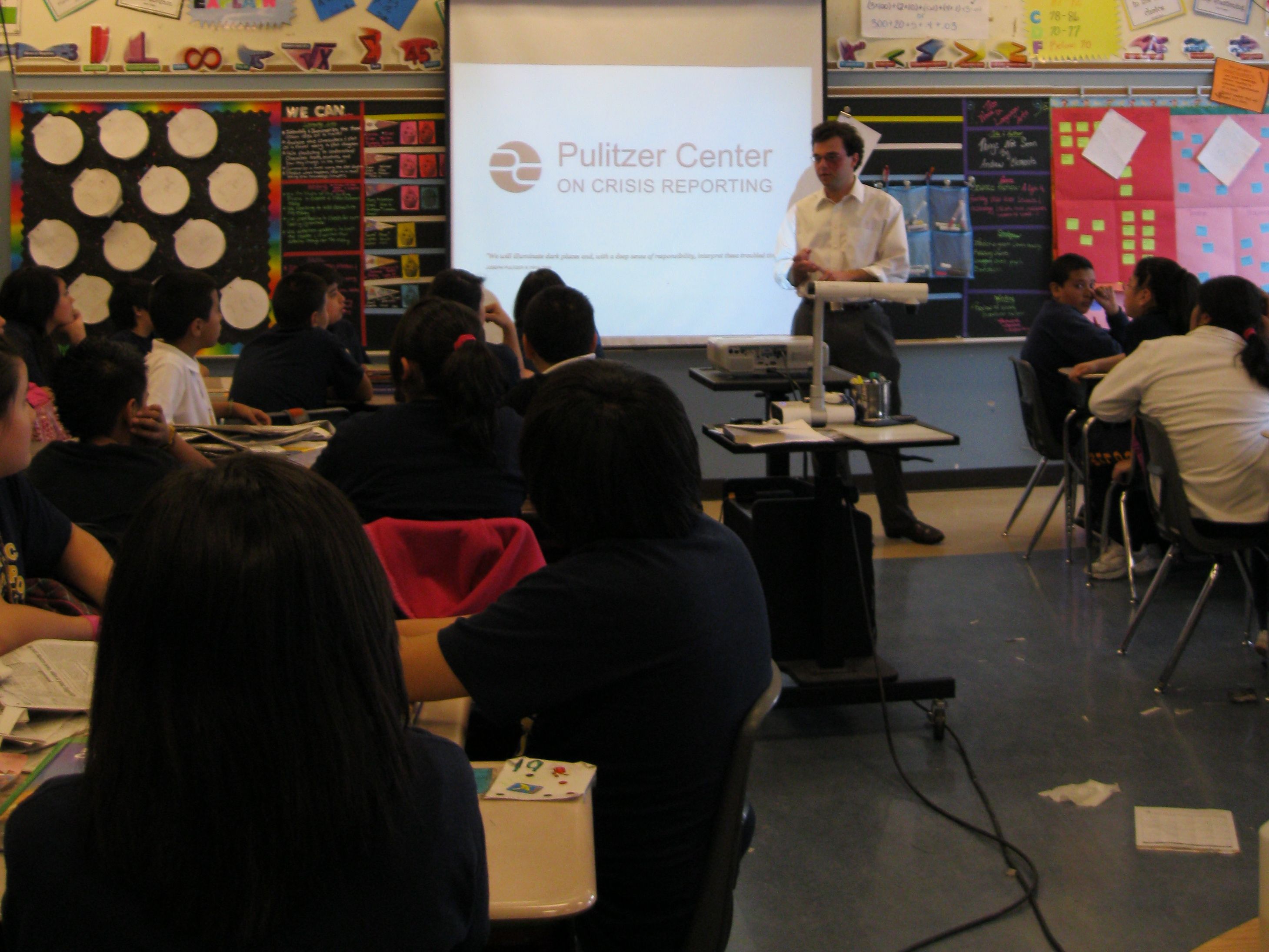Last week, Pulitzer Center staff members Peter Sawyer and Kate Seche shared reporting on the global water and sanitation crisis with over 500 students at seven middle and high schools across Chicago.
For students in Chicago, water has never been anything but abundant. Lake Michigan, the source of much of Chicago's water, is the world's fourth largest freshwater lake.
Pulitzer Center video reports from Ethiopia, Bangladesh, China, and Yemen brought another reality into focus. A 6th grade student at Columbia Explorers Academy reflected, "Today I learned that here in the U.S. we are very fortunate to have washrooms, and water, clean water, in our houses because other countries around the world aren't that fortunate."
Another student expressed surprise that "people who have clean water treat it like nothing. People just waste it while others could enjoy it and people around the world need it. Water is a resource that we have to manage carefully."
Students watched and discussed films about women walking for water in rural Ethiopia, lack of access to toilets and sewers in Dhaka, Bangladesh, desertification in China, and growing water scarcity in Yemen. They also considered their water footprint, including the water needed to grow their food -- a half pound of beef requires 900 gallons of water to produce -- and the products they use everyday like a cotton t-shirt, which takes over 700 gallons.
The Pulitzer Center staff helped students make a local connection to these global issues by exploring the history of the Chicago River (reversed in 1900 to direct the flow of raw sewage and meatpacking and industrial waste towards the Mississippi River rather than into Lake Michigan), and the future of Lake Michigan as many states and countries face severe water shortages and look to the Midwest for support.
All of these discussions highlighted the important role today's youth will play in addressing the global water and sanitation crisis on both a local and global scale.
